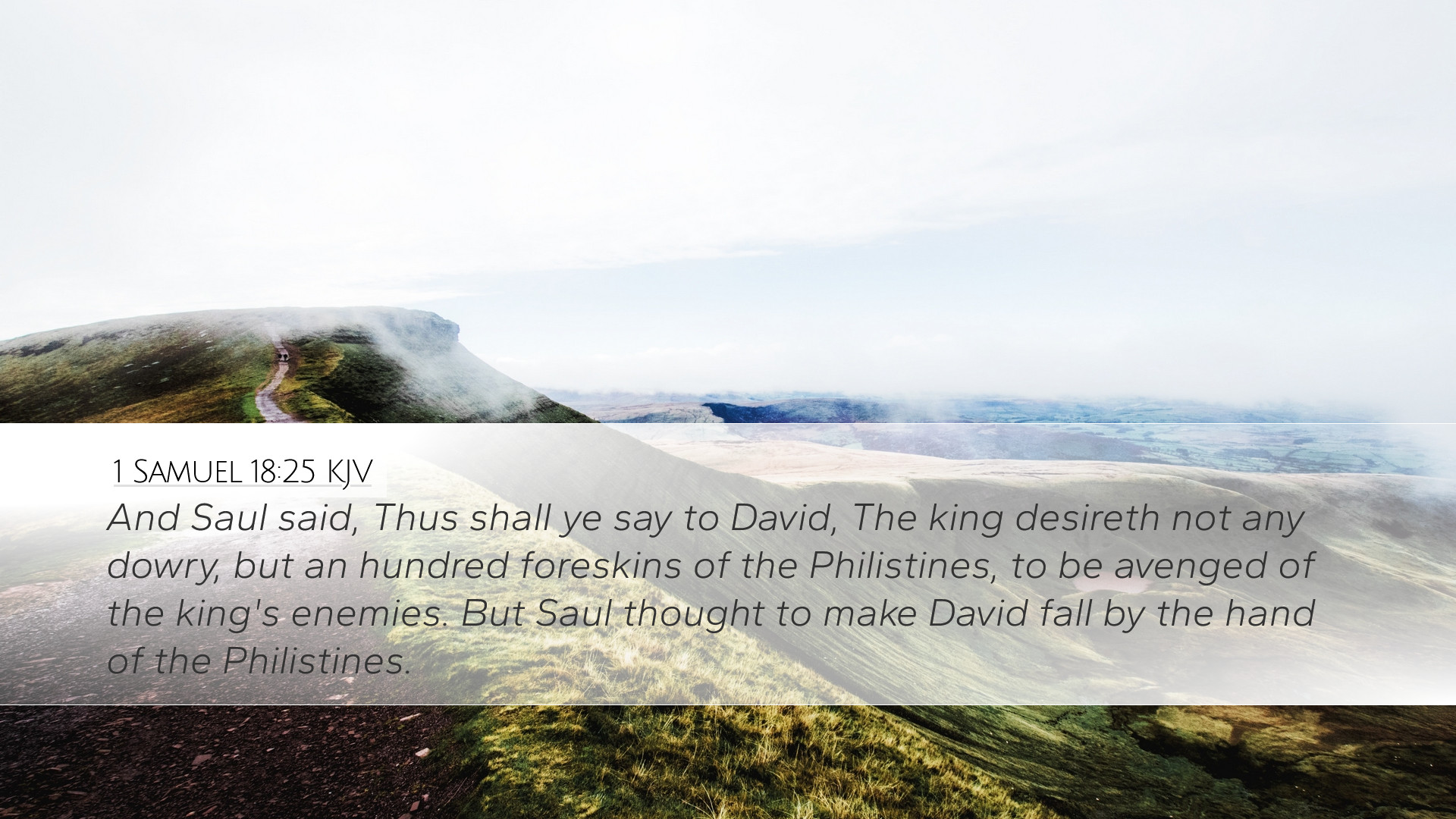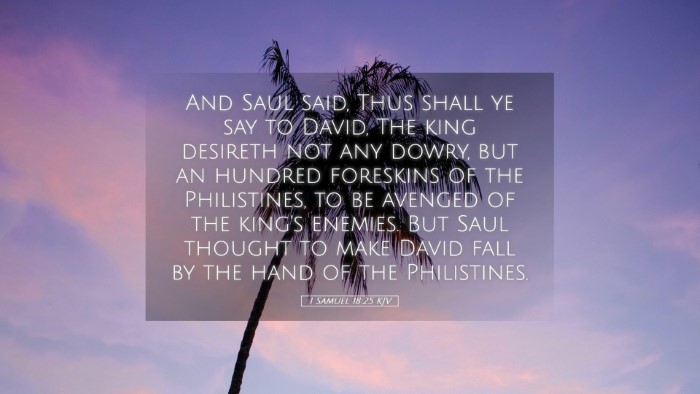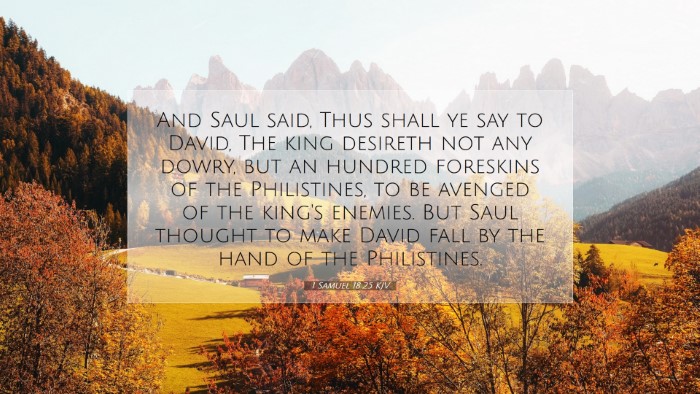Commentary on 1 Samuel 18:25
Verse: "And Saul said, Thus shall you say to David, The king desires not any dowry, but a hundred foreskins of the Philistines, to be avenged of the king's enemies. But Saul thought to make David fall by the hand of the Philistines."
Contextual Overview
TheBook of 1 Samuel narrates critical events in the history of Israel, particularly the establishment of the monarchy. In this chapter, we witness the complex relationship between Saul, the first king of Israel, and David, the chosen successor. This verse is pivotal in understanding Saul's intentions and the challenges David faces.
Examination of Saul's Proposal
Saul's demand for a dowry of foreskins is a radical suggestion steeped in both cultural and military strategy. It serves two purposes:
- 1. Desire for David's Extermination: Saul’s intention to put David in jeopardy is evident. He thinks that sending David against the Philistines would either result in his death or tarnish his reputation.
- 2. Cultural Expectation: In ancient Israel, a dowry was a customary part of marriage negotiations, and the request for foreskins represents a brutal challenge to David’s loyalty and competence.
Theological Insights
This verse highlights themes of jealousy and rivalry, which are prominent throughout the narrative. Saul's fear of David’s rising popularity leads him to craft treacherous schemes. It is essential for scholars to note how human emotions such as jealousy can distort relationships and morality.
Matthew Henry's Perspective
Matthew Henry emphasizes the folly in Saul’s machinations, noting that Saul, although king, is deeply insecure. His attempts to eliminate David reveal not only personal jealousy but also the larger narrative of God’s sovereignty in selecting David as future king. Henry suggests that Saul’s underestimation of David’s faith in God ultimately leads to his own downfall.
Albert Barnes's Commentary
Albert Barnes examines the cultural implications of the dowry. He elucidates how the request serves to expose Saul’s heart – a heart filled with malice towards an innocent David. Barnes notes that Saul perhaps hoped that David would fail and that this demand would bolster Saul's façade of kingship, which was already waning due to the people's growing admiration for David.
Adam Clarke's Analysis
Adam Clarke provides a detailed exegesis on the significance of the foreskins demanded by Saul. He argues that this could be viewed as Saul’s way of trying to engage David in battle against the Philistines, showcasing the king’s neglect of righteous leadership by sacrificing David to satisfy his own insecurities.
Application for Pastors and Theologians
This passage illustrates the destructive nature of envy and the lengths to which one might go to protect their position. It encourages pastors and theologians to reflect on the following:
- 1. The Nature of Leadership: Leaders must guard their hearts against envy, which can lead to detrimental decisions that impact others.
- 2. God’s Sovereignty: Even in the face of human malice, God’s purpose will prevail, offering hope for those who are oppressed by jealousy.
- 3. Hidden Motives: The intent behind actions can often remain hidden as it was with Saul, prompting leaders to examine their own motivations in ministry and leadership.
Conclusion
1 Samuel 18:25 serves as an impactful reminder of the complexities within the human heart, particularly regarding power dynamics. By drawing from the insights of Matthew Henry, Albert Barnes, and Adam Clarke, we are equipped to better understand the text and its implications for both personal conduct and community leadership. In recognizing the challenges faced by David, we gain perspective on resilience, faith, and the overarching will of God in the face of human opposition.


